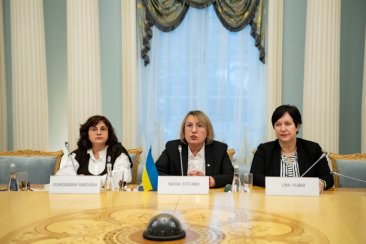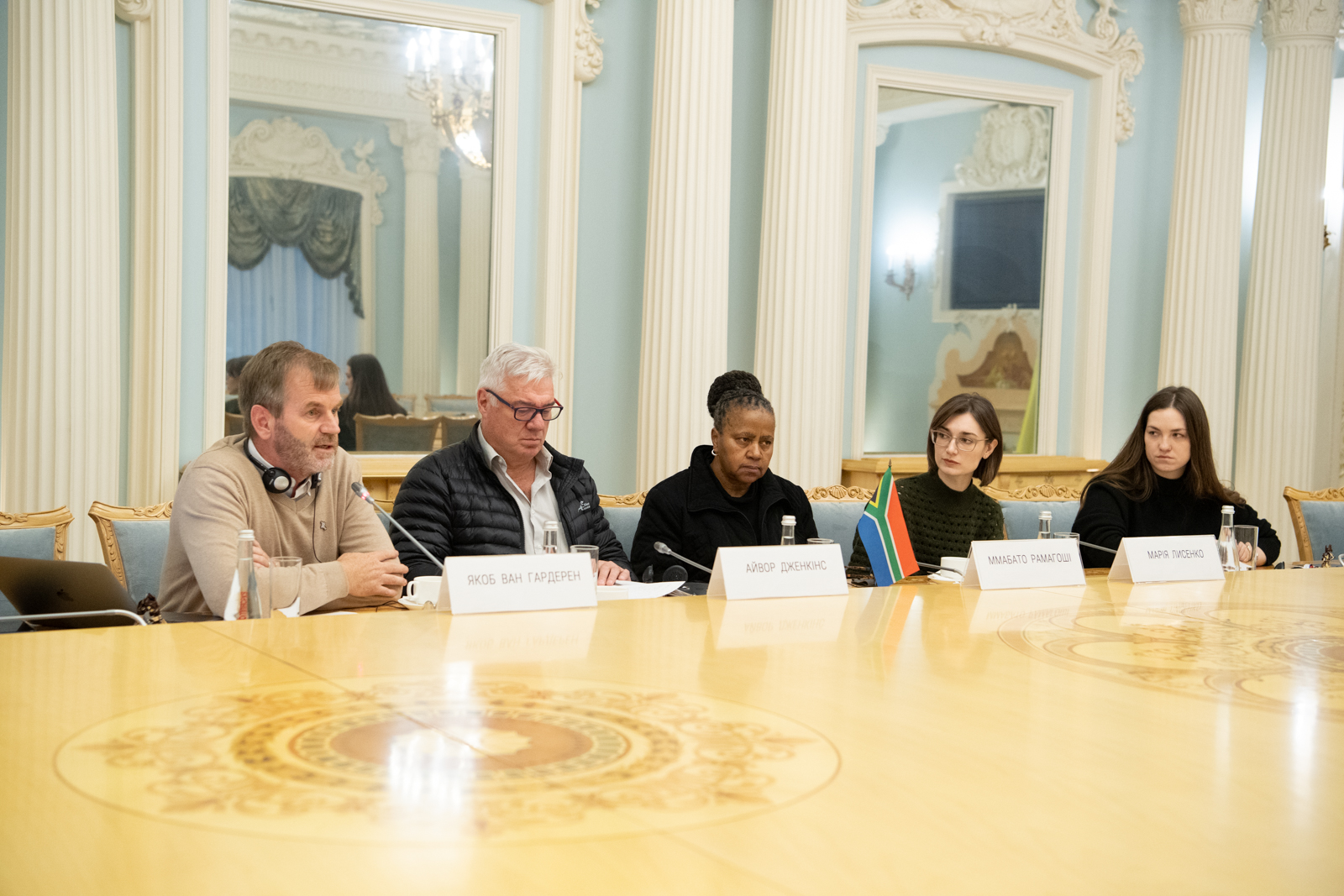Contact center of the Ukrainian Judiciary 044 207-35-46

Russia's full-scale armed aggression against Ukraine has been going on for more than two years. All this time, the country's citizens have been living in extremely difficult conditions, but the courts have not stopped working for a single day. The judiciary is seeking new ways to ensure the quality of justice in the face of constant security threats and other war-related difficulties. This is why international support is so important for Ukraine at this time.
This opinion was expressed by judges of the Supreme Court in the Criminal Cassation Court Nadiia Stefaniv and Oleksandra Yanovska during a meeting with representatives of the civil society of the Republic of South Africa. The topic of discussion was the launch of cooperation between the two countries.
Nadiia Stefaniv told the delegation about the challenges facing the judiciary since russia's full-scale invasion of Ukraine began and the changes, including legislative ones, that have taken place as a result. In particular, she spoke about the consideration of cases in absentia, a special procedure in criminal proceedings (pre-trial investigation and trial). Currently, most of the war crimes proceedings committed by the russian military in Ukraine are being considered in this way.
With this in mind, Ukrainian judges receive special training to deal with this category of cases. Supreme Court judges are also involved in the design of programmes, the writing of guidelines and directly in the educational process.

The question of confidence in the court was discussed separately. Nadiia Stefaniv informed the delegation of the results of a survey of visitors to the Court at the end of 2023: 80% of respondents said they trusted the Court.
Oleksandra Yanovska drew attention to the issue of adjudication of criminal proceedings for crimes against peace, human security and international law and order. She noted that the support of the international community and international judicial bodies is very important to bring the perpetrators to justice. According to the Prosecutor General's Office, more than 126,000 war crimes and crimes of aggression, as well as more than 16,000 crimes against national security, have been registered to date. The judge also noted that law enforcement agencies face difficulties in recording war crimes. This is due, in particular, to the danger of the regions where these criminal offences are most often committed and to their large number, which is quite challenging for Ukraine to cover on its own.
The judge emphasised the relevance of the issue of ecocide crimes, as they have negative consequences for both the ecosystem of a particular region and global food security.
The participants also discussed the issue of gender equality among judges, as Mmabatho Ramagoshi, the head of the South African Women in Dialogue (SAWID) Foundation, was among the guests. Nadiia Stefaniv, who heads the NGO All-Ukrainian Association of Women Judges, told delegates that women now make up more than 40% of the judiciary in Ukraine. At the same time, there are those who are actively involved in the defence of the country, volunteering, etc.
Other participants of the meeting were Ivor Jenkins, Director of the NGO In Transformation Initiative, Jacob van Garderen, Regional Advisor of the South African Human Rights Defenders Network, Mariia Volodina, Core Agency representative, Mariia Lysenko, ZINC NETWORK representative, and Lina Hubar, Head of the Division for International Cooperation of the Supreme Court.